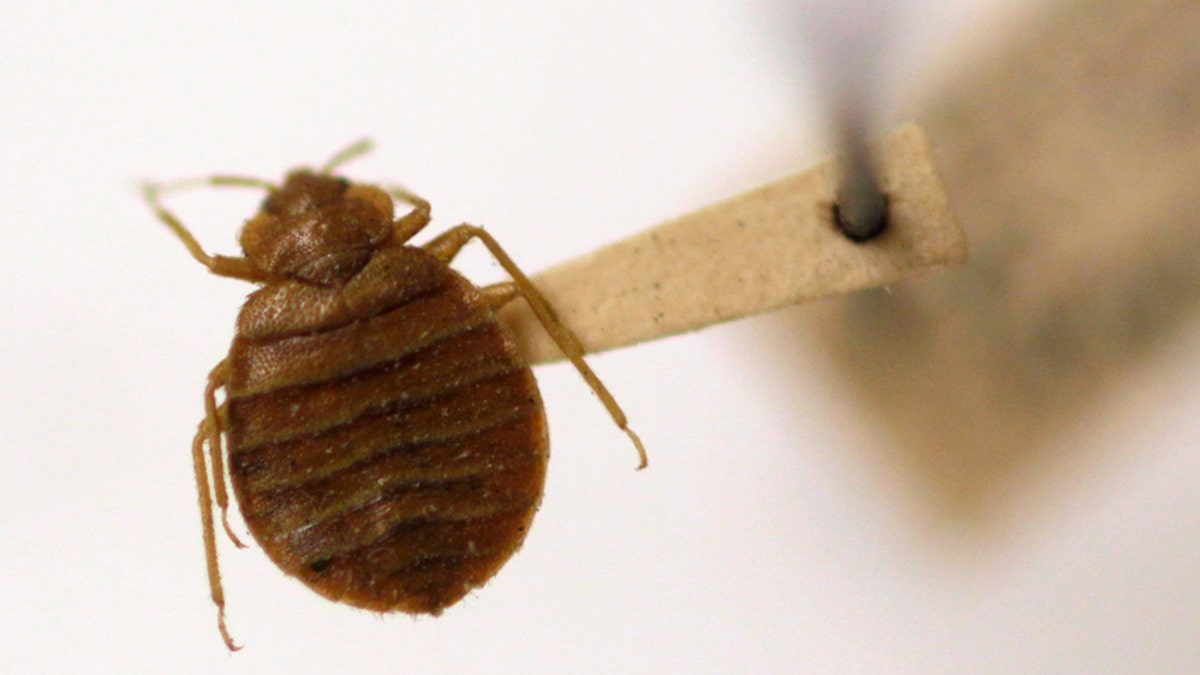
A bed bug is displayed at the Smithsonian Institution National Museum of Natural History in Washington, Wednesday, March 30, 2011. It's that time of year when the bugs emerge to bug us. Some can pose real threats _ Lyme disease from tiny ticks, West Nile virus from mosquitoes, or life-threatening allergic reactions to bee stings. But most bug bites in this country are an itchy nuisance. (AP Photo/Carolyn Kaster) (AP2011)
Inbreeding may be the secret to the bedbug's success, U.S. researchers said on Tuesday.
After nearly disappearing in the United States, the bloodsucking pests have made a comeback in recent years, quickly infesting apartment buildings and stubbornly resisting common insecticides.
The city of New York alone spends as much as $40 million a year in bedbug control.
A study of bedbug genetics presented on Tuesday at the American Society of Tropical Medicine and Hygiene meeting in Philadelphia now suggests why.
A team of entomologists led by Coby Schal and Ed Vargo of North Carolina State University studied the genes of bedbugs infesting three multistory apartment buildings in North Carolina and New Jersey and found very low genetic diversity, meaning most of them were very close relatives.
They were so close in fact that the team suspects it may have taken just one or two founder insects to start an entire infestation.
"We find that bedbug infestations basically start from a very small number of individuals," Schal said in a telephone interview.
"A single mated female bedbug starts the infestation. She gives rise to offspring and those offspring mate with each other and with their mother," he said.
"This is different from many animals," he said, mostly because close inbreeding can result in genetic deformities, adding, "In humans, it is taboo."
But he said there are some animals that can withstand such close inbreeding without experiencing detrimental effects including cockroaches.
Schal said this may be a trait of insects that have evolved an association with humans and rely on them to get from place to place.
Typically this happens when humans bring infested furniture into their homes, and he warns people to inspect second-hand furniture carefully.
"There is a myth out there that bedbugs get transported on people," Schal said.
Unlike ticks, the wingless, reddish-brown insects stay attached to people for a blood meal for just 5 to 10 minutes, he said.
"The chances that a person is carrying bedbugs on them is quite low."
According to the U.S. Centers for Disease Control and Prevention, bedbugs do not carry disease, but their bites can cause severe itching and a whole lot of anxiety.
Schal said his findings are not likely to lead to new insecticides for bedbugs, but they do underscore the need to move fast once bedbugs are detected.
"If you don't deal with them early they can spread thorough a building very quickly," he said.








































